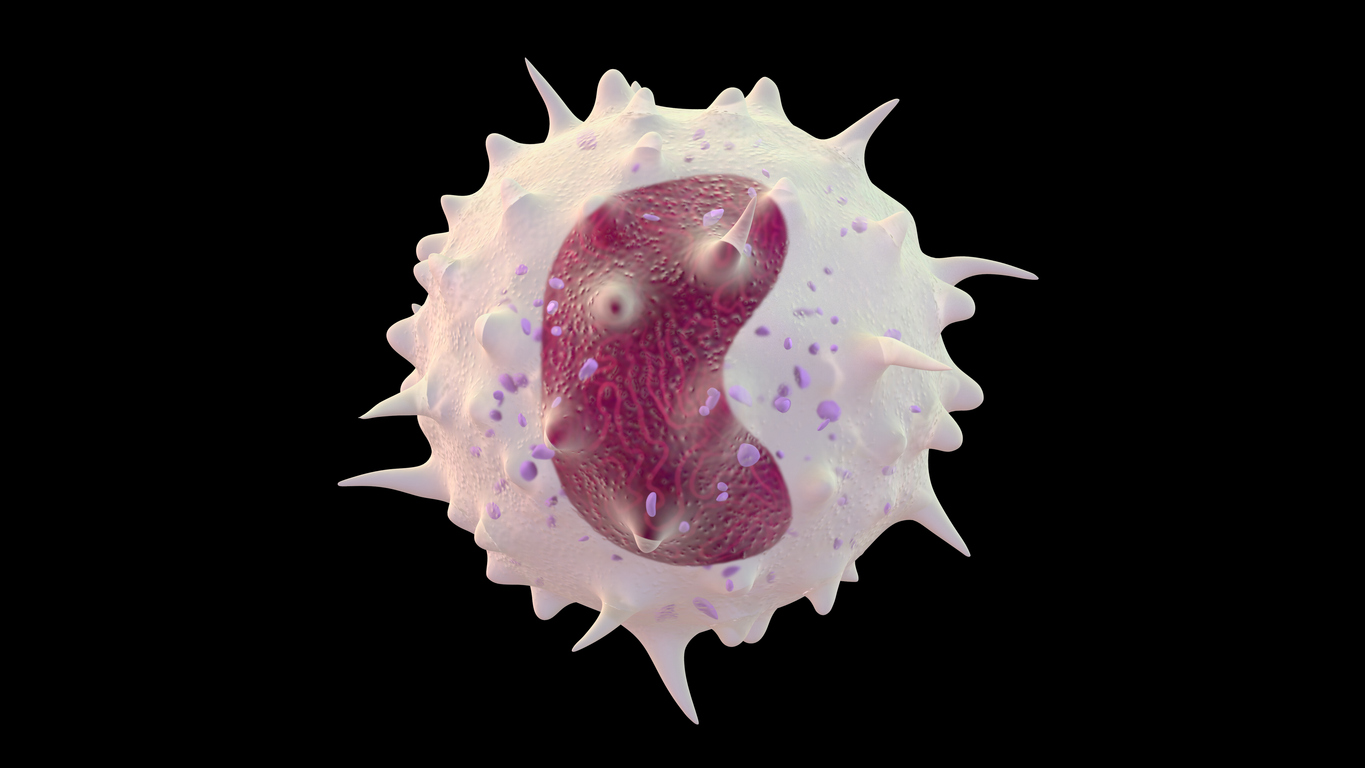Blog
Category: Technical
The Power of T Cell Clonal Expansion
Updated on May 18, 2025 By Jason Ellis, PhD Share
Clonal expansion is the process of rapid cell division resulting in the multiplication of genetically identical cell clones from a single parent cell. In immunology, clonal expansion is a critical process that allows the immune system to produce large numbers of T cells to fight infections. This exponential growth provides a robust concentration of specific genetic material that aids immune and developmental processes. Clonal expansion replaces damaged or worn tissues …
Different Types of T Cells and Their Functions
Updated on Apr 7, 2025 Share
T cells, or T lymphocytes, are a critical component of the immune system, with several different types playing unique roles in defending the body. The main types of T cells include helper T cells, cytotoxic T cells, regulatory T cells, and memory T cells, each specialized to recognize and respond to various pathogens. These cells mature in the thymus and are released into the bloodstream as naïve T cells, prepared …
Why Separate Peripheral Blood Mononuclear Cells
Updated on May 19, 2025 By Jason Ellis, PhD Share
PBMC isolation separates peripheral blood mononuclear cells from other components in the blood, enabling their use in research and therapeutic applications. Within the human body, a sophisticated network of cells orchestrates the complex immune response against harmful pathogens and cancerous cells. Peripheral blood mononuclear cells (PBMCs), including lymphocytes (T cells, B cells, and NK cells) and monocytes, are vital in mediating the body’s immune system. They are also key starting …
Necrosis Vs. Apoptosis: Processes, Necrotic Cell Death, & Apoptosis Steps
Updated on May 16, 2025 Share
Necrosis and apoptosis are the two main types of cell death in the body. Necrosis is often a result of injury leading to uncontrolled cell death, while apoptosis is a programmed and orderly process. Each of these involves a unique process and has different effects on the rest of the body. Understanding these differences is crucial for researchers and clinicians in developing treatments for various diseases. Read on to delve …
What Is PBMC? Human PBMC Cells, PBMC Composition, and Immune Cell Processing
Updated on May 19, 2025 Share
Peripheral Blood Mononuclear Cells Peripheral blood mononuclear cells (PBMC) are crucial immune system cells that protect the body against harmful pathogens. Human PBMCs include T cells, B cells, NK cells, monocytes, and dendritic cells. These cells are essential in immune response and are often used in research and clinical applications due to their versatility. Located in peripheral blood, these cells act as a primary defense against infection and disease, making …
Cell Therapy Using Monocytes and Macrophages
Updated on Jun 10, 2025 By Dominique Badea, PhD Share
In the scientific discourse around adoptive cell immunotherapy, monocytes and macrophages often take a back seat. For the last two decades, immense time and resources have been spent developing T cell-based cancer therapeutics, such as T cell receptor (TCR) and chimeric antigen receptor (CAR) T therapy. For good reason, these therapies have proven incredibly successful in clinical trials for refractory blood cancers and lymphomas that failed other treatment attempts. Remembering …
How CAR Construct Transduction Impacts CAR T Therapy
Updated on Jun 10, 2025 By Dominique Badea, PhD Share
Cancer is a major challenge for the medical community, and it requires innovative and targeted treatment strategies to combat its various forms. One of the most promising strategies is CAR T cell therapy, a type of adoptive cell therapy that has demonstrated positive results, especially in treating hematologic malignancies such as leukemia. This immunotherapy leverages the power of the donor’s immune system, specifically T lymphocytes, which are genetically modified to …
CAR Constructs and the Impact of CAR T Cancer Therapy
Updated on Jun 10, 2025 By Jason Ellis, PhD Share
Cancer continues to pose significant health challenges worldwide, affecting millions of patients each year. Its diverse forms and complexity often require a multifaceted treatment approach. Over the years, various therapeutic strategies have emerged, each bringing its own set of benefits and challenges. Among these strategies, adoptive cell therapy stands out as a promising approach. It involves the direct infusion of immune cells—primed and empowered to combat malignancies—back into the patient. …
What Is Clinical GMP?
Updated on May 17, 2025 By Jason Ellis, PhD Share
Good manufacturing practices (GMP)—are system that ensures products are consistently produced according to quality standards—is a concept most in the biotech industry are familiar with. But what exactly is clinical GMP? Clinical GMP specifically refers to the guidelines associated with products intended for human medical use. Unlike general GMP, which can pertain to various industries, clinical GMP focuses specifically on products intended for human consumption or application, ensuring that medical/medicinal …
Formula for Success: Preparing CAR T Cells for Infusion
Updated on Jun 10, 2025 By Jason Ellis, PhD Share
As modern medicine continues to advance, the battle against cancer is increasingly being fought on a cellular level—and CAR T cell therapy is at the vanguard. Chimeric antigen receptor (CAR) T therapy is a remarkable form of immunotherapy that harnesses the body’s cellular defenses. It has revolutionized the treatment of malignancies such as lymphoma and blood cancers. Yet, the success of this therapy relies on more than just the genetically …






